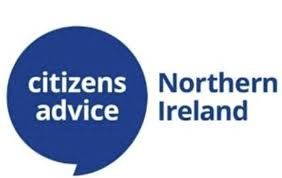Assessing the credibility of financial information and advice
- Learning for Life and Work
- Jun 5, 2020
- 2 min read
Updated: May 15, 2025
When doing research on financial information and advice, it is important that a consumer is aware of the potential bias (one-sided outlook) of the sources of information they are researching in order to make a fully informed decision.
How biased are the following sources?
This would be considered a non-biased source of information as it is an independent service set up by the government to give professional, impartial, quality advice on financial matters.
This would be considered a non-biased source of information as the detail on the website is independent from commercial objectives.
Financial Comparison Websites:
These are usually considered non-biased sources of information. However not all companies use a comparison website and so the consumer may need to use many comparison sites to be able to make a fully informed decision.
Speaking to a financial adviser
This would be considered as a non-biased source of information as the advice should come from an adviser who is registered, qualified and independent and it should be with the interests of the consumer at the centre. Financial Advisers are expected to comply with the Financial Conduct Authority whose work is defined by the Financial Services and Markets Act 2000.
Speaking to the Citizens Advice Bureau
This would be considered an unbiased source of information as its advisers gives information that is impartial, independent and with the interests of the consumer at the heart. The Citizens Advice complies also with the Financial Conduct Authority and this ensures the advice given is unbiased.
Speaking to your bank manager/someone at your local building society
This would be considered a biased source of information as if the consumer takes on any of products offered by the bank/building society, the adviser may receive a commission or a bonus for this.
Speaking to friends and family
This would be considered a biased source of information as they will usually make recommendations on what they have experienced themselves.
QUESTIONS YOU COULD BE ASKED:
Explain two reasons why a financial advisor may provide support for a person. (4marks)
A financial advisor can help a person choose the most suitable investment or financial product for their personal circumstances, making sure it meets their needs. (2 marks)
A financial advisor can give expert advice on mortgages, pensions, or insurance, helping the person understand complex options and possibly find a better deal. (2 marks)
Analyse the credibility of financial information and advice. (6marks)
The Money Advice Service is credible as it’s a government-backed, independent source offering impartial advice without trying to sell products, so consumers can trust the information to be fair and reliable. (2 marks)
Comparison websites are mostly unbiased but may not show all providers, so using more than one site is needed for a full picture. This means the consumer might miss better deals unless they check multiple sites, so the advice is only partially credible. (2 marks)
Bank staff may give biased advice as they could earn commission from promoting their own products or meet sales targets, which means the information may not be in the consumer’s best interest. (2 marks)
You should also read:




















